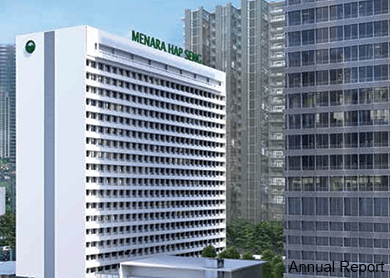
KUALA LUMPUR (May 25): Hap Seng Plantations Holdings Bhd saw its net profit plummet 49% to RM21.49 million, or 2.69 sen per share, in the first quarter of financial year 2015 ended March 31, 2105 (1QFY15) compared to RM42.23 million, or 5.28 sen per share, in the previous corresponding quarter as low palm oil prices, lower sales of palm kernel (PK) and higher production costs hit earnings.
In a filing with Bursa Malaysia, Hap Seng Plantations (fundamental: 2.7; valuation: 2) reported a nearly 18% drop in revenue to RM113.81 million in 1QFY15 compared to RM138.43 million in the first quarter of financial year 2014 (1QFY14).
In a note accompanying the results, Hap Seng Plantations said 1QFY15 earnings were mainly affected by lower average price realisation of crude palm oil (CPO) and palm kernel, lower sales volume of PK as well as higher production costs.
Hap Seng Plantations said the average selling price realisation of CPO and PK during 1QFY15 were RM2,216 and RM1,801 per tonne respectively as compared to the preceding year corresponding quarter of RM2,669 per tonne for CPO and RM1,959 per tonne for PK.
CPO sales volume at 42,087 tonnes was at the same level as the preceding year corresponding quarter while PK sales volume was 14% lower at 8,653 tonnes, the note added.
“CPO production was lower than the preceding year corresponding quarter by 5% due to lower fresh fruit bunches yield but somewhat mitigated by better oil extraction rate,” the note read.
“Production costs were mainly affected by higher estates overheads, field upkeep and manuring costs.”
Hap Seng Plantations expects the palm oil market to continue to be volatile, whereby palm oil price movements are likely to be influenced by soybean oil prices, the strength of the ringgit, palm oil stocks in Indonesia and Malaysia as well as the rate of implementation of the bio-diesel mandates in these two countries.
“Whilst demand appeared to have surged in the first 10 days of May 2015 with the weaker ringgit, making the ringgit-denominated palm feedstock cheaper for overseas buyers, the upside movements in palm oil prices were capped by the rise in palm oil stocks in Malaysia,” the note read.
“Malaysia’s palm oil stocks rose 17.6% to 2.19 million tonnes at end of April 2015, the highest level since November 2014, from 1.87 million tonnes recorded in March 2015.”
The reduction in the Malaysian export tax to zero for May 2015 and the new Indonesian palm oil export levy of US$50 per tonne on CPO exports and US$30 per tonne on processed palm oil exports to be imposed by the third week of May 2015 are expected to boost Malaysian CPO exports in the short term, Hap Seng Plantations said.
“To mitigate some of the downside risks arising from the palm oil prices volatility, the group will continue to put concerted efforts to improve FFB yield, CPO and PK extraction rates as well as keeping costs low,” the note read.
"The group is cautiously optimistic of achieving satisfactory results for the current financial year ending Dec 31, 2015,” the note added.
Hap Seng Plantations' shares closed unchanged at RM2.60, with a market capitalisation of RM2.079 billion.
(Note: The Edge Research's fundamental score reflects a company’s profitability and balance sheet strength, calculated based on historical numbers. The valuation score determines if a stock is attractively valued or not, also based on historical numbers. A score of 3 suggests strong fundamentals and attractive valuations.)